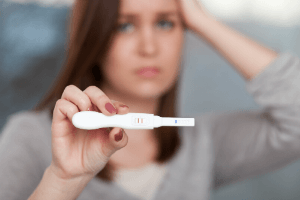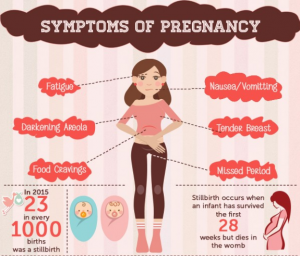14 Common Pregnancy Complications Every Women Must Know
- 11 Jul, 2016
- Written by Team Dr Lal PathLabs
Medically Approved by Dr. Seema
Table of Contents
 To become pregnant, the complicated process of ovulation and fertilization need to work in proper coordination. There are several factors responsible for pregnancy problems both in males and females. Infertility can be present from birth (congenital) or can happen when something go wrong along the results in infertility. If you are facing pregnancy complications, then probably this is the right time to look at the underlying medical problems which can interfere with one’s reproductive health.
To become pregnant, the complicated process of ovulation and fertilization need to work in proper coordination. There are several factors responsible for pregnancy problems both in males and females. Infertility can be present from birth (congenital) or can happen when something go wrong along the results in infertility. If you are facing pregnancy complications, then probably this is the right time to look at the underlying medical problems which can interfere with one’s reproductive health.
Common Pregnancy Problems
Some of the common pregnancy problems that prove to be a hindrance for women to conceive are:
- Hypothyroidism: During pregnancy, the growth, and development of the foetus is controlled by the hormones produced by the thyroid gland of the mother. There is an increase in the problem of the under-active thyroid gland that affects both the mother and the child. While hypothyroidism can be managed with right medication and lifestyle modifications, it can be very challenging to attain the exact level of thyroid activity required to achieve and sustained the pregnancy.
- Diabetes: Improper level of blood glucose can affect seriously the chances of getting pregnant. Diabetes prevents the implantation of the embryo in the uterus causing a miscarriage sometimes even before a woman can realize that she has conceived. According to a report, high blood glucose levels are reported to increase a woman’s chance of miscarriage by 30-60%
- Obesity: Although there is no direct relation between obesity and infertility, the excess body weight inflicts physical complications like – insulin resistance and hormonal imbalances. This not only limits the chance of getting pregnant but the problem tends to retain lifelong.
- Asthma: Research has shown that female asthma has a negative impact on fertility, as it lowers the airways in women and due to a systematic reaction, it simultaneously causes inflammation in the mucosa of the uterus. If not treated correctly, this inflammation can inhibit normal implantation of the fertilized ovum, thereby leading to pregnancy problems.
- Lupus: Lupus is an autoimmune disorder that negatively influence female fertility. Due to high potential risk to the mother and the baby, doctors earlier used to advise women to avoid getting pregnant in this condition. However, with the advancement in the medical technology, having a child while suffering from lupus is not much difficult.
- Migraine: A Migraine apparently has no direct relation to fertility, but studies have shown that it reduces the chances of getting pregnant. The reason being the medications used to treat a migraine has not been clearly identified for pregnant women that lead to pregnancy complications. It is also observed that women suffering from endometriosis are more likely to suffer from a migraine.
- Epileptic: According to research conducted, reproductive abnormalities and infertility are two or three times more common in Epileptic females. This is because epileptic seizures can lead to an increase in the serum prolactin level and fluctuation in women’s reproductive hormones called luteinizing hormone(LH) and follicle-stimulating hormone(FSH).Around 50% of the female population are also reported to suffer from menstrual abnormalities and having a higher frequency of irregular ovulation cycle that adversely lead to pregnancy problems or infertility.
- Endometriosis: It occurs when the endometrial tissue implants and grows outside of the uterus, affecting the function of the ovaries, uterus and fallopian tubes resulting complications in pregnancy.
- Polycystic Ovary Syndrome (PCOS): It is a condition caused by imbalanced hormones in the reproductive system of females resulting in the decrease in the egg production and thus decreases the chance of getting pregnant.
- Fibroids: Fibroids are relatively common affecting 20% of the women. They usually remain small, but sometimes increase in the size may lead to several kinds of pregnancy problems
Male Infertility
The causes of Male infertility includes:
- Obesity and Diabetes: Obesity and diabetes are well known for causing sexual disorders like erectile dysfunction, delayed ejaculation, and low sperm counts.
- Lupus: Lupus in males can also lead to infertility.
- Epileptic: The epilepsy medication can reduce testosterone levels or cause impotency (reduction in the amount of quality sperms).
- Chemicals: Overexpose to certain chemicals and toxins, such as pesticides, radiation. Tobacco, alcohol, and steroids. In addition to it, frequent exposure to heat, such as- saunas or hot tubs can elevate the testicular temperature, impairing sperm production.
Important precautions
Proper precautionary measures are to be taken in order to curb the common problems of pregnancy. Some of them are:
- Maintaining a healthy body weight should be the priority if one is trying to get pregnant.
- Migraine patients are advised to stop the medications for few weeks, after consultation with the doctor before planning a pregnancy.
- People with epilepsy desirous of conceiving should consult the doctors to get epilepsy medications prescribed that are safe and do not impair fertility.
- People suffering from lupus should have complete control over the disorder before planning to get pregnant.
- It is advisable to get the thyroid checked regularly. If you are already under medication for thyroid, it is important for you to get it rechecked even after conceiving as the levels vary during the whole course of pregnancy.














